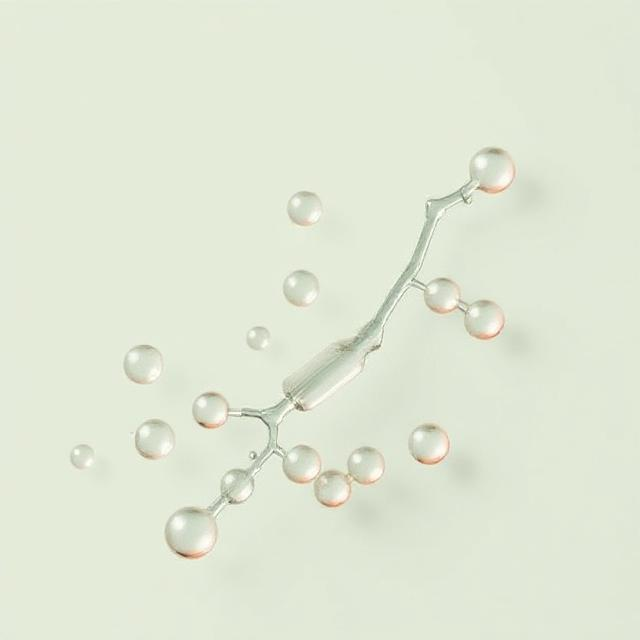
Biochemistry of Peptides
Understanding the biochemistry of peptides is crucial for appreciating their diverse roles in the body. Peptides are more than just simple chains of amino acids; their structure and interactions define their function and impact on health.
How Peptides Work in the Human Body
Peptides work by binding to receptors on cell surfaces and triggering specific functions. Peptide hormones, which are water-soluble molecules, play crucial roles in physiological processes such as growth, differentiation, and metabolic regulation. Unlike pharmaceuticals that often affect broad systems, peptides target precise processes, making them more predictable and easier to manage.
Key functions of peptides:
- Stimulate the release of growth factors and hormones
- Support immune system modulation
- Promote collagen and elastin production
- Aid in muscle and tissue repair
- Enhance gut lining regeneration and vascular repair
- Produce antimicrobial peptides to fight infections and maintain skin integrity
Common natural peptides in the body:
- Insulin: regulates blood sugar
- Endorphins: promote pain relief and mood
- Glucagon: supports glucose release for energy
- Oxytocin: influences emotional bonding
- Growth hormone-releasing peptides: support recovery and development
Biologically active peptides are involved in various physiological processes, influencing cellular functions through peptide-receptor interactions and signaling cascades.
Peptide therapies mimic these natural compounds, delivering specific benefits without overwhelming the body. For example, BPC-157 supports healing in tendons, muscles, and the gastrointestinal tract, while TB-500 improves mobility and accelerates soft tissue recovery.
The Protex blend from Ageless Humans was created to deliver these results in an easy-to-use oral capsule, eliminating the need for mixing powders or administering injections.
Cleveland Clinic notes that collagen peptides may help maintain skin elasticity and hydration, potentially reducing wrinkles.
Health and Performance Benefits of Therapeutic Peptides
Peptides are not just trending in wellness communities—they are being studied and used for real-world impact on recovery, regeneration, and long-term health. These compounds help the body repair faster, recover better, and adapt more efficiently under physical or environmental stress.
Collagen peptide supplements are known to enhance muscle strength, reduce joint pain, and improve athletic performance, making them popular within the health and wellness sectors.
Common benefits associated with peptide use:
-
Accelerated recovery from injury
Supports tissue regeneration in muscles, tendons, ligaments, and skin -
Reduced inflammation
Helps regulate immune responses and oxidative stress -
Joint and cartilage support
Encourages collagen production and connective tissue repair -
Improved gut health
Aids in healing the intestinal lining and reducing digestive inflammation -
Increased energy and endurance
Enhances blood flow, muscle oxygenation, and mitochondrial support -
Cognitive and mood benefits
Some peptides influence neurotransmitter function for sharper focus and emotional balance
Athletes often use peptides for recovery between workouts, while aging adults seek them out to maintain mobility and slow tissue degeneration. BPC-157 and TB-500 are two of the most well-researched options due to their ability to promote systemic healing without side effects or hormonal disruption.
The Protex oral peptide formula combines these two powerful compounds into a single, convenient product. It’s ideal for anyone looking to reduce pain, improve mobility, or recover faster from strain or surgery.
A detailed review discovered that peptides have demonstrated efficacy as anti-inflammatory agents by interacting with specific targets, offering high specificity and reduced side effects compared to traditional small-molecule drugs. For instance, certain endogenous peptides can inhibit or modulate the activity of pro-inflammatory mediators, thereby reducing inflammation.
Types of Synthetic Peptides Used in Supplementation
With dozens of peptides now available on the market, understanding the different types helps guide supplementation strategies. Each peptide targets specific tissues or biological systems, allowing users to customize their approach to performance, recovery, or anti-aging.
Peptide analogues mimic endogenous peptides and are used in various therapeutic applications, including imaging and tumor targeting in oncology.
Popular categories of peptides: collagen peptide supplements
-
BPC-157
Regenerates soft tissue, joints, tendons, and the gut lining -
TB-500 (Thymosin Beta-4)
Enhances muscle recovery, improves mobility, and supports blood vessel health -
GHK-Cu
Boosts collagen and elastin for skin, hair, and joint support -
CJC-1295 / Ipamorelin
Stimulates growth hormone release for recovery, muscle building, and fat metabolism -
PT-141
Targets sexual performance and libido -
Melanotan II
Stimulates skin pigmentation and sun protection
Delivery formats:
- Oral capsules
- Sublingual powders
- Nasal sprays
- Injections (more common in clinical settings)
The Protex BPC-157 + TB-500 stack offers two of the most important recovery peptides in oral form. It’s a clean alternative to injections and is designed to deliver fast, systemic results through a convenient, daily protocol.
Safety, Legality, and Sourcing of Peptides: Peptide Synthesis
Before starting any peptide protocol, it’s essential to understand how safety, legality, and sourcing affect the outcome. With peptides becoming more accessible, there’s also a rise in unregulated products that lack proper dosing, purity, or clinical backing.
Synthetic peptides, produced through methods like solid-phase peptide synthesis, are crucial in medical treatments and have therapeutic potential in various health conditions.
What to look for in a safe peptide product:
- Third-party testing to verify ingredient quality
- Clear labeling with accurate dosing and no hidden fillers
- GMP-certified facilities for pharmaceutical-grade manufacturing
- No proprietary blends that hide real ingredient amounts
- Ensure the product is produced using solid phase peptide synthesis for high-quality and purity
Are peptides legal?
- In the United States: Many peptides are legal to purchase for research or personal wellness use. Prescription-only restrictions apply to certain hormone-stimulating peptides.
- Globally: Laws vary. Always review local regulations or consult a licensed health provider.
- Peptides like BPC-157 and TB-500 are widely used for non-hormonal, regenerative applications and are not classified as controlled substances.
Choosing a peptide stack from a trusted provider eliminates the guesswork. The Protex formula by Ageless Humans is made in the USA, tested for purity, and designed for long-term use without injections.
Who Should Consider Peptides and How to Get Started
Peptides are not reserved for elite athletes or advanced biohackers. They offer broad benefits for recovery, inflammation, and tissue regeneration—making them suitable for anyone looking to feel, move, and perform better.
The development of synthetic peptide, such as insulin, marked a significant milestone in medical history and continues to play a vital role in treatments today.
Who peptides are ideal for:
- Individuals recovering from injuries or surgery
- Athletes dealing with joint stress or muscle fatigue
- People struggling with gut inflammation or discomfort
- Adults seeking anti-aging support or mobility improvements
- High performers optimizing energy, sleep, and focus
How to start using peptides:
- Choose peptides that match specific goals (e.g., recovery, gut health, anti-aging)
- Opt for oral delivery formats for ease and consistency
- Take consistently for 30 to 90 days
- Track results in areas like energy, pain, range of motion, and digestion
The Protex oral stack combines BPC-157 and TB-500 to address multiple systems at once—muscle, gut, nerve, and connective tissue. It’s beginner-friendly, clinically dosed, and ideal for long-term daily support.
Peptides as a Key to Modern Recovery and Regeneration
Peptides are no longer reserved for advanced clinical protocols or elite athletic performance. They have emerged as one of the most versatile tools in modern wellness, offering targeted, science-backed support for tissue repair, inflammation control, gut health, and overall vitality.
These naturally occurring compounds work with the body—not against it—to speed up recovery, support hormone balance, and promote long-term resilience. Whether it’s bouncing back from injury, reducing chronic inflammation, or enhancing daily performance, peptides provide the adaptability and precision that other supplements often lack.
For those looking to begin with a high-impact, easy-to-use stack, Protex BPC-157 + TB-500 by us at Ageless Humans offers the perfect starting point. Designed for full-body regeneration, it supports joint, muscle, nerve, and gut health—all in a convenient oral format with clean, clinically-aligned ingredients.
Peptides represent the future of recovery and performance. With the right product and a consistent protocol, it's now easier than ever to integrate them into a daily routine—and see measurable, lasting results.

